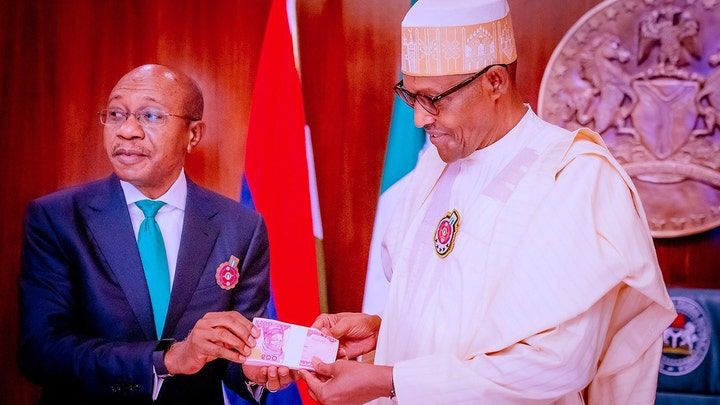
Nigeria restricts ATM withdrawals to $45 per day in push to digital currency
Nigeria will soon begin restricting ATM withdrawals to just $45 per day as part of a push to move the country toward a cashless economy.
The policy – which will also apply to banks and cashback from purchases – follows the launch of the West African nation's newly designed currency notes to control the money supply.
The Central Bank of Nigeria limited weekly over-the-counter cash withdrawals to 100,000 naira ($225) for individuals and 500,000 naira ($1,124) for corporations, with a processing fee required to access more.
When the policy takes effect in January, ATMs will no longer dispense Nigeria's high denominations of 1,000 naira ($2.25) and 500 naira ($1.10) while withdrawals from ATMs and point-of-sale terminals also will be limited to 20,000 naira ($45) daily.
Haruna Mustafa, the bank's director of banking supervision, said cash withdrawals may be permitted in "compelling circumstances, not exceeding once a month."
Policymakers say the withdrawal limits and recent monetary initiatives from the central bank would bring more people into the banking system and curb currency hoarding, illicit flows, and inflation.
 FILE: Godwin Emefiele, left, chairman of the Central Bank of Nigeria
(CBN), attends the presentation of new banknotes after Nigerian
President Mohammed Buhari, right, unveils newly designed banknotes due
to counterfeiting and increasing security problems on Nov. 23, 2022, in
Abuja, Nigeria.
FILE: Godwin Emefiele, left, chairman of the Central Bank of Nigeria
(CBN), attends the presentation of new banknotes after Nigerian
President Mohammed Buhari, right, unveils newly designed banknotes due
to counterfeiting and increasing security problems on Nov. 23, 2022, in
Abuja, Nigeria.
Nigeria’s economy heavily depends on the "informal sector" – activities outside the legal framework and government regulation such as farming, street and market trade, and public transport. In this sector, where most Nigerians work, cash is usually preferred for transactions because many lack bank accounts.
Only 45% of adults in Nigeria have accounts with regulated financial institutions, according to the World Bank. In the absence of bank accounts, point-of-sale terminals have emerged as one of the fastest-growing areas of financial inclusion in the country.










